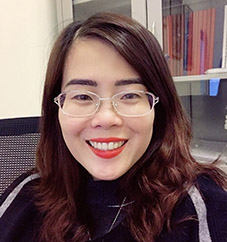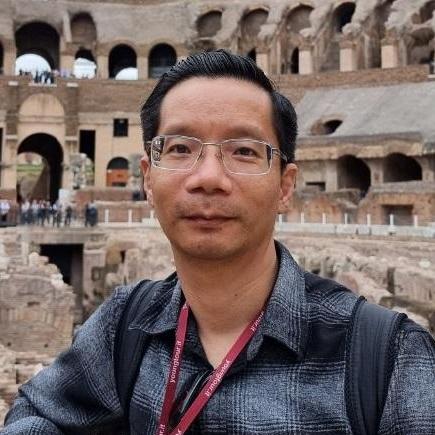Research Forum: Transforming Language Education: Fostering Job-Ready Graduates Worldwide with TBLT
About the Forum
With globalisation, increased mobility, and technological advancements reshaping language education, the forum aims to address the pressing need for graduates equipped with practical communicative skills in diverse, multicultural societies, exacerbated by the challenges posed by the recent global pandemic.
Building upon the success of the previous forum in August 2023, titled "The changing face of language teaching: Creating job-ready graduates in Vietnamese and Australian university programs," the School of Languages and Cultures is collaborating with two esteemed Vietnamese partner universities: the University of Foreign Languages at Hue University and Hanoi University. This collaborative effort is supported by the UQ Global Strategy and Partnership Seeding Grant, highlighting the importance of international cooperation in addressing the evolving landscape of language education.
Distinguished TBLT (Task-Based Language Teaching) experts, Associate Professor Rosemary Erlam from The University of Auckland and Associate Professor Jonathan Newton from Victoria University of Wellington, will enrich the forum with their insights and expertise.
The event will feature three research paper presentations, a keynote address by Assoc Prof Erlam, and lightning talks, providing a comprehensive exploration of TBLT and its role in preparing graduates for the demands of the current societies. Moreover, by adopting a hybrid format, the forum ensures accessibility to a wide audience within the University of Queensland (UQ) community and beyond.
Overall, the "Transforming Language Education" research forum promises to be a pivotal event, bringing together scholars, practitioners, and stakeholders to explore innovative approaches to language teaching and learning, ultimately contributing to the development of job-ready graduates capable of thriving in diverse linguistic and cultural contexts.
Keynote Address
Teaching in the present for the future
There has been much focus on Task-based language teaching (TBLT) over the last 20 years (Van den Branden, 2006). TBLT is advocated as an approach that gives learners both the opportunity to use language meaningfully and authentically, as in the real world, and the opportunity to develop language fluency (Ellis, 2009). However, an imbalance in the TBLT literature, with its focus on research rather than actual practice (Bygate, 2020), has led to a need for more information about the challenges for teachers of implementing TBLT in their specific contexts.
In this presentation I will begin by briefly taking the focus away from TBLT and on to principles of effective instructed language learning (Ellis, 2005). Together we will consider to what extent examples of tasks that teachers have used in their practice match up with these principles. I will then explore some of the challenges that teachers face in implementing TBLT to ensure best practice for language learning and propose some ways forward.
Speaker
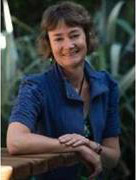 Rosemary Erlam is Associate Professor at the University of Auckland. She currently leads the Postgraduate Certificate/Diploma in Teaching Linguistically Diverse Learners. A former teacher of French, Rosemary has worked with in-service teachers of a range of modern foreign languages, exploring with them how they might put second language acquisition theory into practice in their classrooms. She is a co-author of Teaching Languages to Adolescent Learners (2021), Pedagogical Realities of Implementing Task-based Language Teaching (2022) and editor of Teaching the Linguistically Diverse Learner in Aotearoa New Zealand (2024).
Rosemary Erlam is Associate Professor at the University of Auckland. She currently leads the Postgraduate Certificate/Diploma in Teaching Linguistically Diverse Learners. A former teacher of French, Rosemary has worked with in-service teachers of a range of modern foreign languages, exploring with them how they might put second language acquisition theory into practice in their classrooms. She is a co-author of Teaching Languages to Adolescent Learners (2021), Pedagogical Realities of Implementing Task-based Language Teaching (2022) and editor of Teaching the Linguistically Diverse Learner in Aotearoa New Zealand (2024).
Featured papers
Paper 1: Negotiating ‘tensions’ in TBLT implementation: Voices from Vietnamese teachers
This interpretive case study investigated how teachers in an urban upper-secondary school responded to the challenges in enacting the recent communicative, task-based language teaching curriculum in Vietnam. The study adopted cultural-historical activity theory as its theoretical lens to shed light on the complex and dynamic interactions among teachers’ perceptions, practices and the social context of their work. Qualitative data were generated through multiple interviews, classroom observations and documentations over seven months. The results revealed the participant teachers aspired to make pedagogical changes. During the enactment process, they experienced multiple ‘tensions’ within the pull of the status quo. They showed their commitment and resilience in (re)negotiating these tensions and (re)structuring their practices to orient their teaching towards communicative practices. The study concludes with implications for teacher educators and policy-makers to support teachers in implementing communicative, task-based language teaching.
Speaker
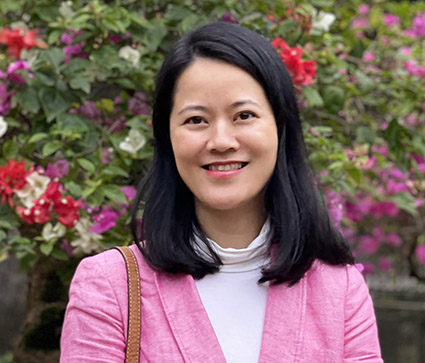 Phan Do Quynh Tram has been a teacher of English and teacher educator for more than 20 years at Hue University of Foreign Languages and International Studies, Hue University, Vietnam. Tram obtained her PhD at University of New South Wales, Sydney, Australia. Her research interests include language teacher education and professional development, educational innovation, and sociocultural theory.
Phan Do Quynh Tram has been a teacher of English and teacher educator for more than 20 years at Hue University of Foreign Languages and International Studies, Hue University, Vietnam. Tram obtained her PhD at University of New South Wales, Sydney, Australia. Her research interests include language teacher education and professional development, educational innovation, and sociocultural theory.
Paper 2: Designing pedagogic tasks derived from needs analysis research
The selection of tasks in task-based language teaching (TBLT) constitutes a crucial aspect of the approach. While approaches to selecting tasks vary depending on the learner groups, it is widely acknowledged that, in contexts where learners have specific occupation language needs, task selection should be determined by needs analysis (NA). Although much research has been conducted on NA to identify the language needs of specialised learner groups, few empirical studies have explored how the results obtained from needs analysis can be used to inform the development of pedagogic tasks.
The present study investigated how EFL teachers working in agricultural VET schools in Chile design and perceive the design of tasks derived from NA research. Through a case study approach, three teachers participated in a workshop intervention in which they were presented (a) a list of target tasks and (b) Ellis’s (2003, 2009) task criteria. During the intervention, each teacher designed a pedagogic task drawing on the target tasks presented and based on Ellis’s task criteria. Data included workshop recordings, interviews, journals and the tasks designed by the teachers.
Findings showed that the tasks they designed clearly derived from the NA findings and closely aligned with the theoretical definition, with the criterion learners use their own resources perceived as the most challenging to implement in the future. Furthermore, teachers expressed favourable views toward using target tasks to inform pedagogic tasks and emphasised the positive aspects of task design over the challenging ones. In evaluating, participants’ each other tasks they all found that all tasks successfully fulfil the task criteria.
The study’s findings contribute to the literature task-based language teaching (TBLT) and inform pedagogy, specifically classroom tasks derived from NA research.
Speaker
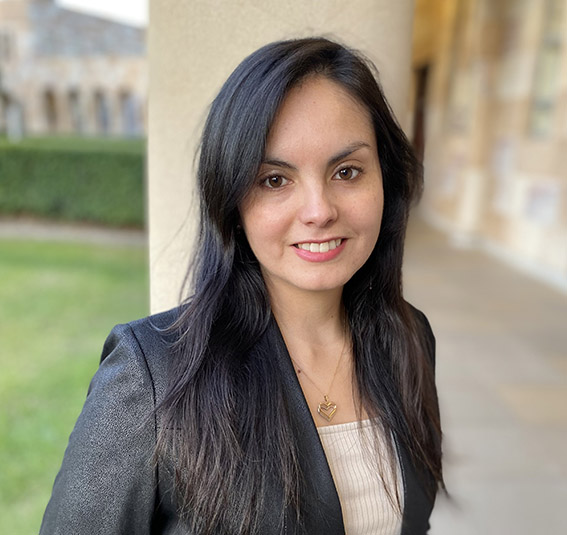
Carolina Arias-Contreras teaches in the School of Languages and Cultures at The University of Queensland (UQ), Australia. She holds a master’s degree in applied linguistics and TESOL studies, as well as a PhD in applied linguistics from UQ. Her research interests involve English for specific purposes (ESP), task-based language teaching (TBLT), needs analysis (NA) research, and vocational education and training (VET). Her work has been published in the series The Global Research on Teaching and Learning English and the journal English for Specific Purposes.
Paper 3: Reimagining the EFL reading classroom: training Job-ready readers with tblt and literature-based language teaching
In today's information-rich environment, reading not only requires linguistic skills to comprehend the text but also the ability to analyze implicit meanings, connect ideas to their existing knowledge and evaluate situation-specific language choices. This paper proposes an innovative approach to EFL reading instruction by integrating task-based language teaching (TBLT) principles with English literary texts. The aim is to enhance students' job readiness by fostering critical thinking, sociolinguistic awareness, and pragmatic competence. The paper begins by discussing the core principles of TBLT and the benefits of incorporating literary texts into the EFL reading classroom. It then presents a practical procedure for developing tasks that integrate both approaches, offering concrete examples tailored to students at the B2 proficiency level and above. Through this integrated approach, learners are empowered to take ownership of their learning, develop critical thinking and cultivate an acute awareness of sociolinguistic nuances and the ability to select contextually appropriate language, all of which are necessary for success in professional contexts.
Speakers
 Phuong-Anh Nguyen is a lecturer at Hanoi University where she teaches communicative English, Lexicology, and Sociolinguistics. Her main interests include TBLT, semantics, corpus linguistics, and sociolinguistics. She is actively developing ESL materials, including a recently published book on the IELTS Speaking test and gamified tasks for the English-speaking app “Eduling Speak”.
Phuong-Anh Nguyen is a lecturer at Hanoi University where she teaches communicative English, Lexicology, and Sociolinguistics. Her main interests include TBLT, semantics, corpus linguistics, and sociolinguistics. She is actively developing ESL materials, including a recently published book on the IELTS Speaking test and gamified tasks for the English-speaking app “Eduling Speak”.
 Cao Xuan Thuc Anh is now teaching at English Department, Hanoi University. She gained her PhD in Human Science at the University of Ferrara, Italy. Her research interests include TBLT, English literature, especially in English language teaching, and sustainable education.
Cao Xuan Thuc Anh is now teaching at English Department, Hanoi University. She gained her PhD in Human Science at the University of Ferrara, Italy. Her research interests include TBLT, English literature, especially in English language teaching, and sustainable education.
Lightning talks
Talk 1: Task-based language teaching: Can it be the answer?
The study investigates the potential of Task-Based Language Teaching (TBLT) to enhance language education, addressing educators' familiarity with task-based methodologies and confidence in English language instruction. It focused on four key task characteristics proposed by Ellis (2003), studying eighty secondary school English teachers in Indonesia. Using various data collection methods, including reflective journals and interviews, I found that participants recognized TBLT's feasibility and benefits, demonstrating resilience and deepening their understanding of its implementation. Notably, they improved in fostering students' reliance on their resources, a crucial aspect of TBLT. The study highlighted TBLT's ability to meet students' language learning needs and develop essential soft skills. Collaborative learning communities played a central role in enhancing teachers' knowledge and self-efficacy, prompting discussions about establishing a dedicated TBLT Community of Practice. Moving forward, integrating TBLT professional development and exploring TBLT's intersection with translanguaging are essential for meeting educators' evolving needs. Ultimately, TBLT has the potential to transform language education by equipping educators to cultivate students' proficiency and holistic skill set, fostering inclusivity and preparing them for success in a globalised world.
Speakers
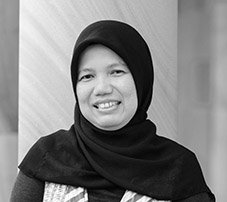 Nurhemida, University of Queensland, taught English in Indonesia, from elementary schools to the university level (2002 – 2010). As a Civil servant, she was assigned to teach at senior high schools (2003 – 2018). After finishing her doctoral study at UQ in 2023, currently she works as a staff at the provincial education department in West Sumatra. She hopes to teach at a university in her province in the near future.
Nurhemida, University of Queensland, taught English in Indonesia, from elementary schools to the university level (2002 – 2010). As a Civil servant, she was assigned to teach at senior high schools (2003 – 2018). After finishing her doctoral study at UQ in 2023, currently she works as a staff at the provincial education department in West Sumatra. She hopes to teach at a university in her province in the near future.
Talk 2: Exploring employability for pre-service language teachers in Vietnam: Mapping a group lesson planning task against the TESOL Technology Standards.
The TESOL Technology Standards can be an effective tool in evaluating and showcasing language teachers’ job-readiness in the essential area of technology integration in language teaching, learning and assessment. This is particularly the case in Vietnam, where longstanding government policy aims to train all pre-service teachers in technologies for language teaching, and current practice appears to give more weight to the features of technologies rather than technology-infused pedagogies. In this lightning talk, we explore pre-service teachers’ performance and reflections on a group lesson plan task as part of an undergraduate course in Integrating ICT in Language Teaching and Learning. In addition to evaluating the pre-service teachers’ capabilities against the TESOL Technology Standards, we outline the implications of such training for technology-mediated task-based language teaching (TMTBLT).
Speakers
| Hong Giang Nguyen is a senior lecturer of Applied Linguistics and TESOL, Deputy Dean of English Department, and Vice Director of the MTESOL programme (International) at Hanoi University, Vietnam. Her research interests focus on CALL, blended language learning, interactional competence, and language teacher education. |
| Quang Vinh Nguyen is a senior lecturer in applied linguistics and TESOL at the English Department of Hanoi University, Vietnam. He is currently an Adjunct Associate Professor at the University of Canberra, where he convenes and teaches in the Master of TESOL & FLT programme. His research interests span a diverse range, including ICT/CALL, TEFL, blended language learning, learner autonomy, intercultural communication, and language teacher education. |
| Paul Moore convenes and lectures in the postgraduate Applied Linguistics program at The University of Queensland’s School of Languages and Cultures, specialising in Language and Technology and Sociocultural Theory. He has held positions on the executive board of the Applied Linguistics Association of Australia (ALAA), and the editorial board of Language Learning and Technology. His research interests include a sociocultural perspective on task-based interaction in classroom and online contexts, intercultural communication, and the dynamic roles of the L1 in L2 interaction. |
Talk 3: Exploring Vietnamese high school EFL teachers' perceptions and practices of TBLT in teaching speaking skill
This study investigated high school English as a Foreign Language (EFL) teachers' perceptions and practices of task-based language teaching (TBLT) in teaching speaking skills in a province in Central Vietnam. Employing a mixed methods research design, the study included twenty-five EFL teachers from various high schools in the province, using questionnaires, interviews, and class observations for data collection.
The findings indicated that the majority of teachers acknowledged the importance of TBLT in teaching speaking. They considered TBLT an instructional approach that provided learners with authentic speaking opportunities by engaging them in tasks simulating real-life communication situations. The perceived benefits of TBLT included enhanced speaking proficiency among English students, meaningful interaction, increased motivation, and the development of essential 21st-century skills. Despite these advantages, the teachers reported infrequent TBLT implementation in their teaching practices. Their preferred TBLT activities included task-based role-plays and collaborative projects. Additionally, the teachers shared strategies for implementing TBLT effectively. However, the study identified several challenges in implementing TBLT, including teachers' limited pedagogical knowledge and experience, time constraints, and varying student proficiency levels. These findings highlighted the need for tailored professional development programs and support systems to address these challenges and promote effective TBLT implementation in teaching speaking skills. The study concluded with recommendations for enhancing the integration of TBLT into language teaching practice.
Speaker
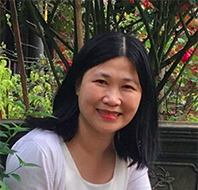 Tran Quang Ngoc Thuy (Thuy TRAN) is a senior lecturer in the English Department at Hue University of Foreign Languages and International Studies (HUFLIS), Vietnam. She holds MA and PhD degrees in Applied Linguistics from the University of Queensland, Australia. With over 20 years of experience in English language teacher education, she specializes in training pre-service and in-service teachers through various professional development programs. Her research interests encompass teaching methodology, early language learning, intercultural communication, computer-assisted language learning (CALL), and language assessment.
Tran Quang Ngoc Thuy (Thuy TRAN) is a senior lecturer in the English Department at Hue University of Foreign Languages and International Studies (HUFLIS), Vietnam. She holds MA and PhD degrees in Applied Linguistics from the University of Queensland, Australia. With over 20 years of experience in English language teacher education, she specializes in training pre-service and in-service teachers through various professional development programs. Her research interests encompass teaching methodology, early language learning, intercultural communication, computer-assisted language learning (CALL), and language assessment.
Talk 4: Adopting TBLT to teach English language to beginner young learners: Are Vietnamese pre-service EFL teachers ready?
This paper enlightens the extent to which a group of pre-service EFL teachers in a training program at a university in central Vietnam have been ready to teach English to young learners (TEYL) in the light of communicative language teaching (CLT) or task-based language teaching (TBLT) approaches during their practicum. The findings were collected from a questionnaire delivered to sixty pre-service EFL teachers by the time their 8-week practicum commenced at primary schools and from classroom observations which were followed up with individual interviews about their teaching experiences and adoption of TBLT. The findings from the questionnaire revealed that the group of sixty pre-service teachers self-rated their knowledge of English language teaching methods and approaches, including AL, TPR, CLT, and TBLT and their ability to adopt these methods in TEYL at a moderately high level (with mean value of 4 or so). However, the observations of nine English lessons, delivered by nine pre-service teachers in nine primary schools using two series of English textbooks, depicted the absence of transformations from PPP to TBLT in English language teaching at primary schools. This was accounted for by the teachers' readiness for adapting the currently-used textbooks with a repertoire of appropriate tasks for beginner young learners and the teacher supervisors' approval of making any transformations in their teaching routines. The paper concludes with implications for teacher trainers to allocate more time in the teacher training program for TBLT theoretical input and practice and for school leaders and in-service teachers to be responsive to innovative teaching methods to enhance their students' English language competence.
Speaker
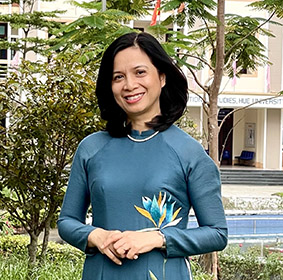 Quynh-Nhu PHAN is a senior lecturer at Hue University of Foreign Languages and International Studies. She obtained her MA in Applied Linguistics at the University of Queensland, Australia and her PhD in Education at the University of Technology, Sydney, Australia. Her research interests include TESOL and teacher education and professional development. She has extensive experience in teaching EFL to learners of various levels, training in-service and pre-service teachers, and developing teacher training materials.
Quynh-Nhu PHAN is a senior lecturer at Hue University of Foreign Languages and International Studies. She obtained her MA in Applied Linguistics at the University of Queensland, Australia and her PhD in Education at the University of Technology, Sydney, Australia. Her research interests include TESOL and teacher education and professional development. She has extensive experience in teaching EFL to learners of various levels, training in-service and pre-service teachers, and developing teacher training materials.
Talk 5: Enhancing Graduates’ Readiness: Teachers' Agency in TBLT Implementation at Indonesian Universities
Task-Based Language Teaching (TBLT) has emerged as an effective method for improving English communicative skills in various educational settings, including Indonesian universities. It is valued for its ability to enhance student engagement, promote meaningful language use, develop communication skills, and integrate real-world tasks that prepare graduates for the workforce. However, the success of TBLT relies not only on students but also on teachers, who play a critical role as agents of change. Despite its benefits, implementing TBLT faces challenges due to unclear policies, misunderstandings among educators, and obstacles in classrooms and institutional settings. This study investigates how English language lecturers exercise their agency in implementing TBLT to enhance student engagement, promote meaningful language learning, and develop communication skills within communicative competence-oriented curricula. Using the theory of teachers' agency from an ecological perspective, this research explores lecturers' life experiences, knowledge, beliefs, values, and goals related to TBLT. By understanding how lecturers address implementation challenges, this study aims to improve TBLT practices in Indonesian universities and provide insights for transforming language education globally to meet the needs of diverse, job-ready graduates in today's evolving societies. Additionally, the findings inform teacher training programs and enhance the application of TBLT theory and practice within university contexts.
Speaker
Nissa is passionate about areas of second language acquisition, EFL, TESOL, and English language teaching and learning. With a Master of Education (TESOL) from the University of Sydney, my research focuses on English language teaching, specifically in second language acquisition. Currently, Nissa is an English lecturer at an Indonesian university and a PhD student at the University of Queensland. My professional focus includes researching effective teaching methodologies for second and foreign language learners and exploring innovative approaches to language acquisition in educational settings. Outside of my academic pursuits, Nissa is dedicated to expanding my knowledge and skills in the field of English language education by contributing to the advancement of language teaching practices and supporting language learners in achieving proficiency and fluency.
Back to top
About Research Forum: Transforming Language Education: Fostering Job-Ready Graduates Worldwide with TBLT
With globalisation, increased mobility, and technological advancements reshaping language education, the forum aims to address the pressing need for graduates equipped with practical communicative skills in diverse, multicultural societies, exacerbated by the challenges posed by the recent global pandemic.
Building upon the success of the previous forum in August 2023, titled "The changing face of language teaching: Creating job-ready graduates in Vietnamese and Australian university programs," the School of Languages and Cultures is collaborating with two esteemed Vietnamese partner universities: the University of Foreign Languages at Hue University and Hanoi University. This collaborative effort is supported by the UQ Global Strategy and Partnership Seeding Grant, highlighting the importance of international cooperation in addressing the evolving landscape of language education.
Distinguished TBLT (Task-Based Language Teaching) experts, Associate Professor Rosemary Erlam from The University of Auckland and Associate Professor Jonathan Newton from Victoria University of Wellington, will enrich the forum with their insights and expertise.
The event will feature three research paper presentations, a keynote address by Assoc Prof Erlam, and lightning talks, providing a comprehensive exploration of TBLT and its role in preparing graduates for the demands of the current societies. Moreover, by adopting a hybrid format, the forum ensures accessibility to a wide audience within the University of Queensland (UQ) community and beyond.
Overall, the "Transforming Language Education" research forum promises to be a pivotal event, bringing together scholars, practitioners, and stakeholders to explore innovative approaches to language teaching and learning, ultimately contributing to the development of job-ready graduates capable of thriving in diverse linguistic and cultural contexts.
Date: Friday 3 May
Location: Sir Llew Edwards Building (14), room 116 , UQ St Lucia
Online: Zoom https://uqz.zoom.us/j/86262705915
Program
| 12.15-12.30pm | Welcome |
| 12.30-13.15pm | Keynote address by Rosemary Erlam |
| 13.20-13.45pm | Featured Paper 1 |
| 13.45-14.10pm | Featured Paper 2 |
| 14.10-14.36pm | Featured Paper 3 |
| 14.30-14.40pm | Break |
| 14.40-15.05pm | Five Lightning talks |
| 15.10-16.00pm | Round table discussion Discussants - Jonathan Newton, Rosemary Erlam and presenters |
| 16.00-16.10pm | Closing |
Enquiries – Noriko Iwashita n.iwashita@uq.edu.au

